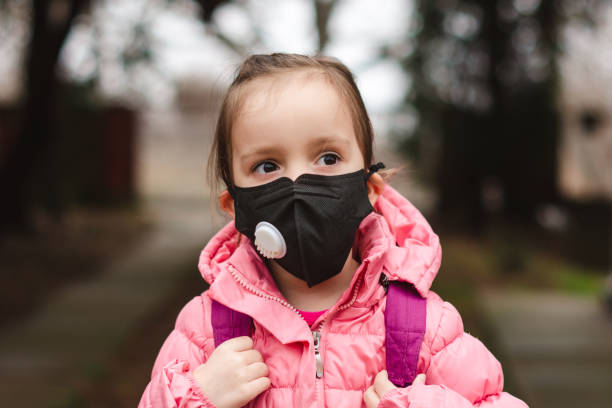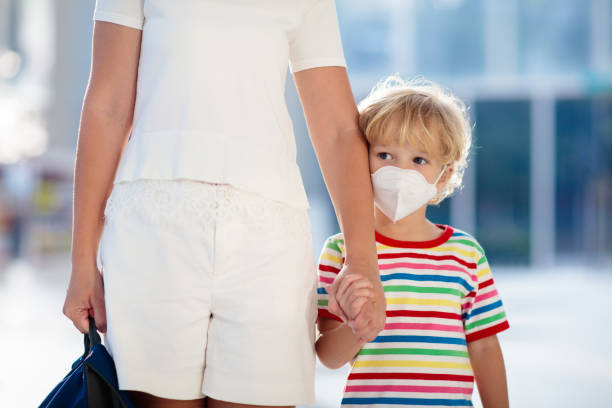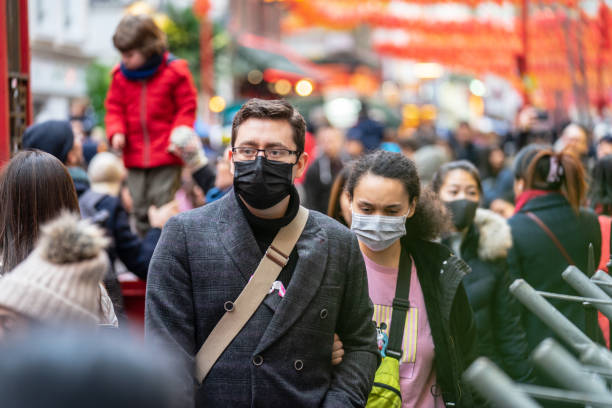The 2019 Novel Coronavirus: Unveiling the Global Pandemic
In late 2019, a novel coronavirus emerged in the city of Wuhan, China, marking the beginning of an unprecedented global pandemic. This virus, named the 2019 novel coronavirus or COVID-19, swiftly spread to every corner of the world, challenging healthcare systems, economies, and societies at large. The ensuing crisis highlighted the interconnectedness of our modern world and underscored the need for swift and coordinated responses to mitigate the impact of infectious diseases.
Origin and Transmission:
The origins of the 2019 novel coronavirus are believed to be linked to a seafood market in Wuhan, where live animals were also sold. The virus likely originated in bats and might have been transmitted to humans through an intermediate animal host. Its rapid transmission was facilitated by human-to-human contact, primarily through respiratory droplets expelled when an infected person coughs, sneezes, or talks. This mode of transmission prompted health authorities to advocate for wearing masks, practicing physical distancing, and maintaining good hand hygiene.
Global Spread and Impact:
Within weeks of its emergence, the virus reached multiple countries, raising alarm bells worldwide. The World Health Organization (WHO) declared COVID-19 a pandemic in March 2020. Borders were closed, travel restrictions imposed, and entire nations went into lockdown to curb the virus's spread. The pandemic not only strained healthcare systems but also led to unprecedented social and economic disruptions. Industries such as travel, hospitality, and entertainment were particularly hard-hit, resulting in job losses and economic downturns.
Scientific Endeavors:
Scientists and researchers swiftly rallied to understand the virus, its mode of transmission, and potential treatments. The genetic sequence of the virus was shared globally, enabling the rapid development of diagnostic tests and vaccines. Collaboration among researchers, governments, and pharmaceutical companies led to the unprecedented rapid development and emergency approval of several COVID-19 vaccines, which played a crucial role in controlling the spread of the virus and reducing severe illness and death.
Healthcare Challenges:
The sudden and massive influx of COVID-19 cases strained healthcare systems to their limits. Hospitals faced shortages of medical supplies, ventilators, and even healthcare workers. The virus's impact was particularly severe on vulnerable populations, including the elderly and those with pre-existing medical conditions. Efforts were made to adapt healthcare facilities, establish temporary hospitals, and implement telemedicine solutions to continue providing essential medical care.
Social and Psychological Impact:
The pandemic's impact extended beyond physical health. Prolonged lockdowns and social isolation took a toll on mental health, leading to increased rates of anxiety, depression, and other psychological issues. Disruptions to daily routines, closure of schools, and remote work setups reshaped the way societies functioned. Many communities came together to support each other through mutual aid networks and online platforms, highlighting the resilience of human spirit in the face of adversity.
Economic Repercussions:
The pandemic triggered an economic crisis on a global scale. Businesses faced closures, supply chains were disrupted, and unemployment rates soared. Governments responded with stimulus packages to support struggling individuals and industries. Remote work and digital solutions saw rapid adoption, accelerating trends in e-commerce, remote communication, and telecommuting.
Vaccine Rollout and Recovery:
Amid the challenges, the development and distribution of vaccines emerged as a beacon of hope. Multiple vaccines were developed using various technologies, including mRNA and viral vector platforms. Mass vaccination campaigns were launched to achieve herd immunity and bring an end to the pandemic. However, challenges related to vaccine distribution, hesitancy, and equitable access highlighted the need for global cooperation in addressing health crises.
Lessons Learned:
The 2019 novel coronavirus pandemic revealed vulnerabilities in global health systems and underscored the importance of preparedness, early detection, and rapid response to emerging infectious diseases. It emphasized the critical role of accurate information, effective communication, and international collaboration in managing a crisis of this magnitude. The experience prompted discussions about reforming healthcare, bolstering research efforts, and enhancing global cooperation in public health.
Looking Ahead:
As the world continues to grapple with the 2019 novel coronavirus, the lessons learned from this pandemic will undoubtedly shape our approach to future health crises. Investments in research, healthcare infrastructure, and international collaboration will be essential to prevent, detect, and respond to emerging infectious diseases more effectively. The experience has demonstrated the power of human resilience, innovation, and unity in overcoming even the most formidable challenges that threaten our global community.
In late 2019, a novel coronavirus emerged in the city of Wuhan, China, marking the beginning of an unprecedented global pandemic. This virus, named the 2019 novel coronavirus or COVID-19, swiftly spread to every corner of the world, challenging healthcare systems, economies, and societies at large. The ensuing crisis highlighted the interconnectedness of our modern world and underscored the need for swift and coordinated responses to mitigate the impact of infectious diseases.
Origin and Transmission:
The origins of the 2019 novel coronavirus are believed to be linked to a seafood market in Wuhan, where live animals were also sold. The virus likely originated in bats and might have been transmitted to humans through an intermediate animal host. Its rapid transmission was facilitated by human-to-human contact, primarily through respiratory droplets expelled when an infected person coughs, sneezes, or talks. This mode of transmission prompted health authorities to advocate for wearing masks, practicing physical distancing, and maintaining good hand hygiene.
Global Spread and Impact:
Within weeks of its emergence, the virus reached multiple countries, raising alarm bells worldwide. The World Health Organization (WHO) declared COVID-19 a pandemic in March 2020. Borders were closed, travel restrictions imposed, and entire nations went into lockdown to curb the virus's spread. The pandemic not only strained healthcare systems but also led to unprecedented social and economic disruptions. Industries such as travel, hospitality, and entertainment were particularly hard-hit, resulting in job losses and economic downturns.
Scientific Endeavors:
Scientists and researchers swiftly rallied to understand the virus, its mode of transmission, and potential treatments. The genetic sequence of the virus was shared globally, enabling the rapid development of diagnostic tests and vaccines. Collaboration among researchers, governments, and pharmaceutical companies led to the unprecedented rapid development and emergency approval of several COVID-19 vaccines, which played a crucial role in controlling the spread of the virus and reducing severe illness and death.
Healthcare Challenges:
The sudden and massive influx of COVID-19 cases strained healthcare systems to their limits. Hospitals faced shortages of medical supplies, ventilators, and even healthcare workers. The virus's impact was particularly severe on vulnerable populations, including the elderly and those with pre-existing medical conditions. Efforts were made to adapt healthcare facilities, establish temporary hospitals, and implement telemedicine solutions to continue providing essential medical care.
Social and Psychological Impact:
The pandemic's impact extended beyond physical health. Prolonged lockdowns and social isolation took a toll on mental health, leading to increased rates of anxiety, depression, and other psychological issues. Disruptions to daily routines, closure of schools, and remote work setups reshaped the way societies functioned. Many communities came together to support each other through mutual aid networks and online platforms, highlighting the resilience of human spirit in the face of adversity.
Economic Repercussions:
The pandemic triggered an economic crisis on a global scale. Businesses faced closures, supply chains were disrupted, and unemployment rates soared. Governments responded with stimulus packages to support struggling individuals and industries. Remote work and digital solutions saw rapid adoption, accelerating trends in e-commerce, remote communication, and telecommuting.
Vaccine Rollout and Recovery:
Amid the challenges, the development and distribution of vaccines emerged as a beacon of hope. Multiple vaccines were developed using various technologies, including mRNA and viral vector platforms. Mass vaccination campaigns were launched to achieve herd immunity and bring an end to the pandemic. However, challenges related to vaccine distribution, hesitancy, and equitable access highlighted the need for global cooperation in addressing health crises.
Lessons Learned:
The 2019 novel coronavirus pandemic revealed vulnerabilities in global health systems and underscored the importance of preparedness, early detection, and rapid response to emerging infectious diseases. It emphasized the critical role of accurate information, effective communication, and international collaboration in managing a crisis of this magnitude. The experience prompted discussions about reforming healthcare, bolstering research efforts, and enhancing global cooperation in public health.
Looking Ahead:
As the world continues to grapple with the 2019 novel coronavirus, the lessons learned from this pandemic will undoubtedly shape our approach to future health crises. Investments in research, healthcare infrastructure, and international collaboration will be essential to prevent, detect, and respond to emerging infectious diseases more effectively. The experience has demonstrated the power of human resilience, innovation, and unity in overcoming even the most formidable challenges that threaten our global community.




